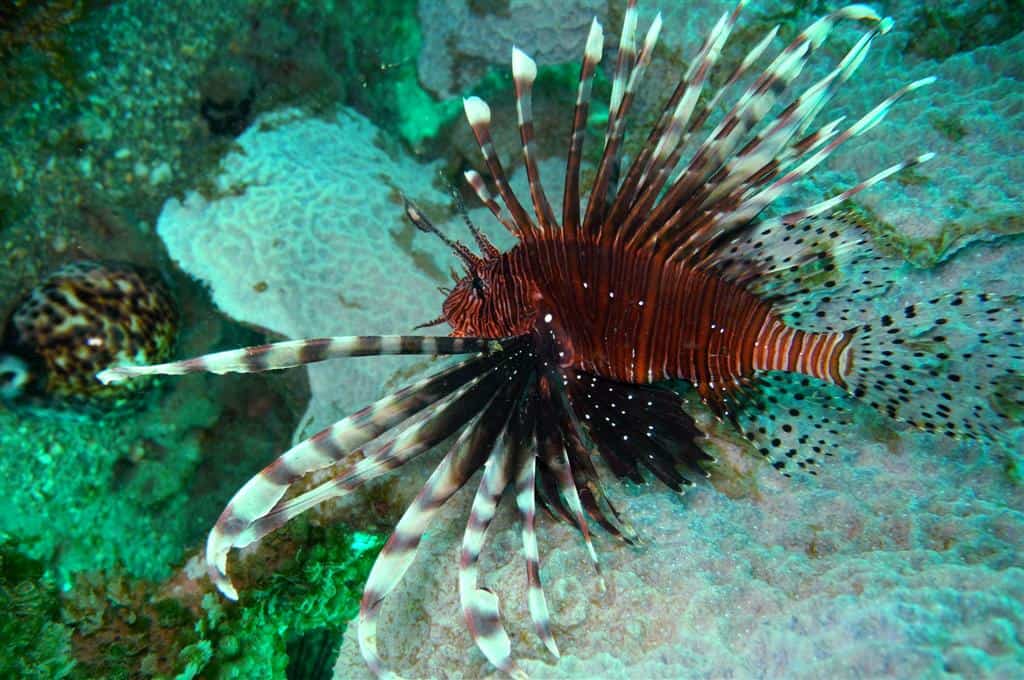Deep-fried lionfish may be the new dish du jour along Costa Rica’s Caribbean coast thanks to a new campaign intended to curb the growth of the invasive species’ local population.
Lionfish are known for their beautiful stripes and highly venomous spines. The fish first appeared along Costa Rica’s Atlantic coast in 2009, likely released accidentally from an aquarium in Florida. Lacking natural predators in the Atlantic, the invasive lionfish feed on local reef species. Reports from some fishermen claim an 87 percent reduction in the catch of native species of fish, lobster, shrimp and crabs since the lionfish’s introduction.
Laying up to 2.5 million eggs per fish every year, the lionfish has rapidly reproduced throughout the entire Caribbean. A study conducted by Costa Rica’s National University in 2011 found 91 lionfish per hectare near the Caribbean beaches of Cahuita and Manzanillo. According to the National Oceanic and Atmospheric Administration, the further spread of the lionfish throughout the Caribbean could have irreversible effects on the region’s reef ecosystems.
According to the “Regional Strategy for the Control of Lionfish,” a report compiled by Caribbean environmental agencies, full eradication from the Caribbean is unlikely, but there are strategies to control the population. One way is to start eating it. As long as the spines are removed, lionfish are safe to eat, and turning the invasive creature into a hit menu item is the best way to make it commercially viable for fishermen to seek it out.
During a trip to the Caribbean over the weekend, President Luis Guillermo Solís announced his support for a local plan to kill off as many lionfish as possible.
“It’s a very serious threat to the economic livelihood of artisanal fishermen,” Solís said. “We support a more rigid and forceful attack on this invasive species.”
The new campaign comes months after the Environment Ministry (MINAE) launched an official offensive against the lionfish. Bringing in experts from Mexico, MINAE has begun crafting a national strategy to control the fish’s population.






